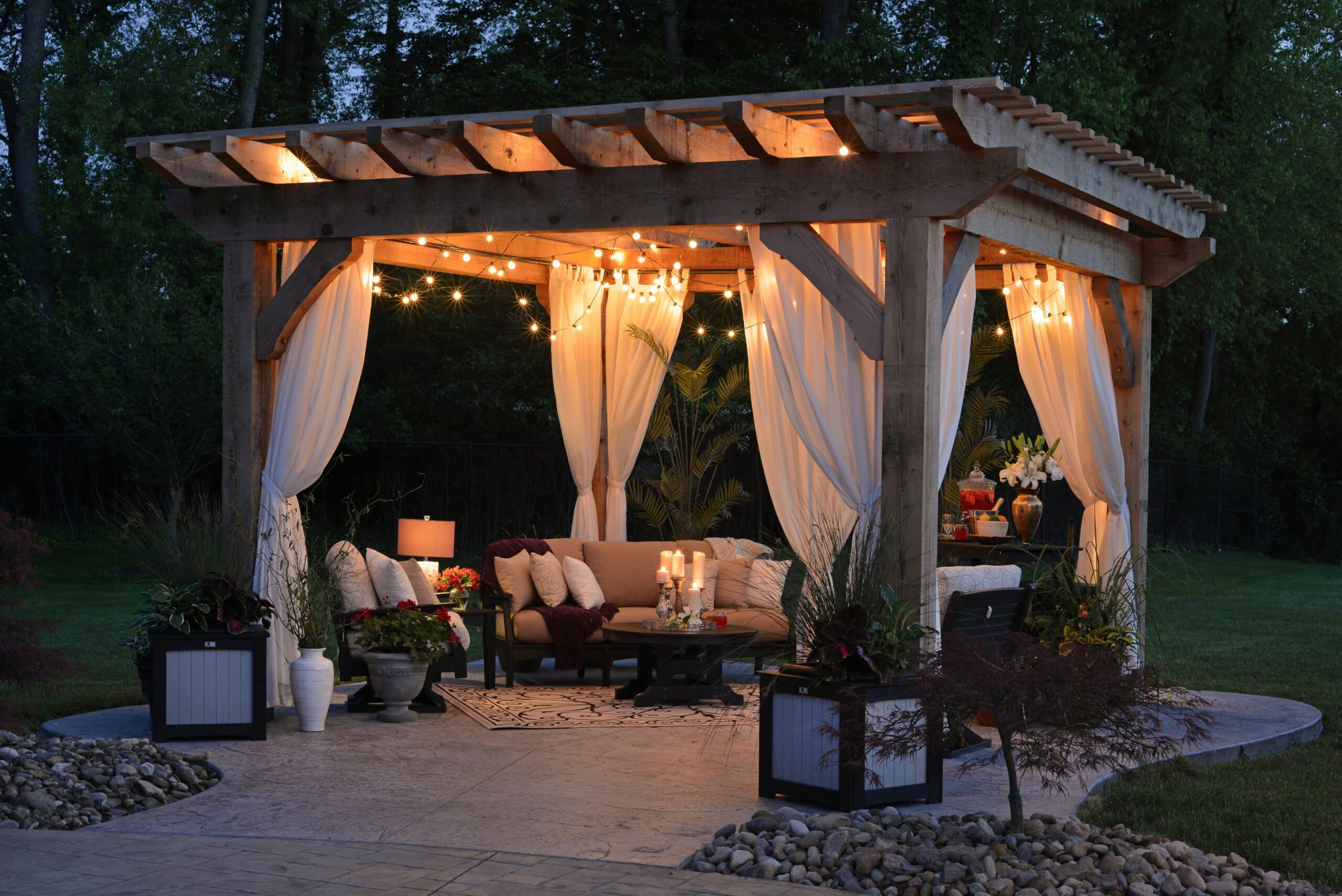
When it comes to selecting the best pergola material for hot climates, such as those found in Texas, Florida, and Arizona, there are several factors to consider. These include weather resistance, durability, longevity, cost-effectiveness and maintenance requirements.
If budget is an important consideration, it might be tempting to opt for pine as a pergola material. However, pine is prone to decay and rotting in hot climates due to increased moisture and temperature levels.
Cedar is another popular option for pergolas, but cedar can be heavier than other materials, making it more difficult to construct your structure. It also requires regular staining or sealing in order to maintain its color and weather-resistant properties.
Vinyl is another good choice for hot climates, as it does not rot or corrode over time and is very resistant to the elements. It also requires minimal maintenance, making it an ideal option for those who want a low-maintenance pergola material.
No matter which material you choose, your pergola will be sure to provide a stunning centerpiece in any outdoor space. With the right materials and proper maintenance, you can enjoy your backyard oasis for years to come.
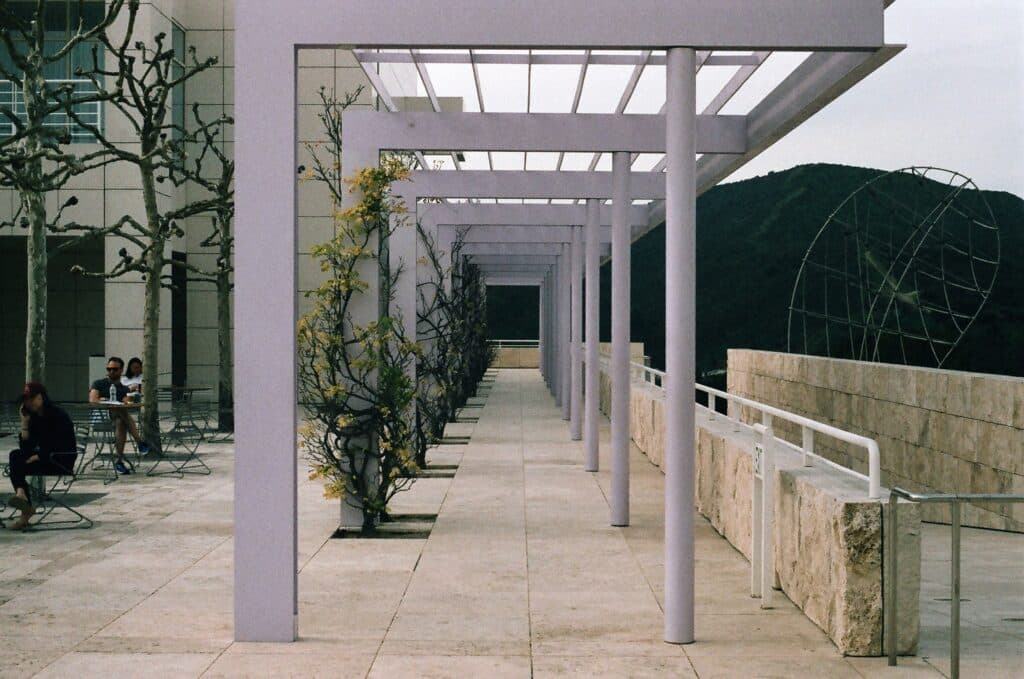
Pros and Cons of using Aluminum as pergola material for Texas, Arizona, Florida
Aluminum is one of the best materials you can use for your pergola. It is strong and durable, yet lightweight and easy to work with. aluminum is also resistant to rot, insect damage, and weathering, making it an ideal material for outdoor use.
However, there are a few drawbacks to using aluminum for your pergola. First of all, it is one of the more expensive pergola materials available. Second, aluminum can be difficult to paint or stain, so it may not be the best choice if you are looking for a specific color or finish.
Overall, however, aluminum is a great choice for a pergola material that will last for years to come.
Do aluminum pergolas get hot?
Aluminum pergolas can get hot during the summer, especially in direct sunlight. In order to combat this issue, it is best to choose a light-colored aluminum material that reflects heat rather than absorbing it. Additionally, adding a shade cloth or canopy over your pergola will help keep things cool and comfortable in even the hottest climates.
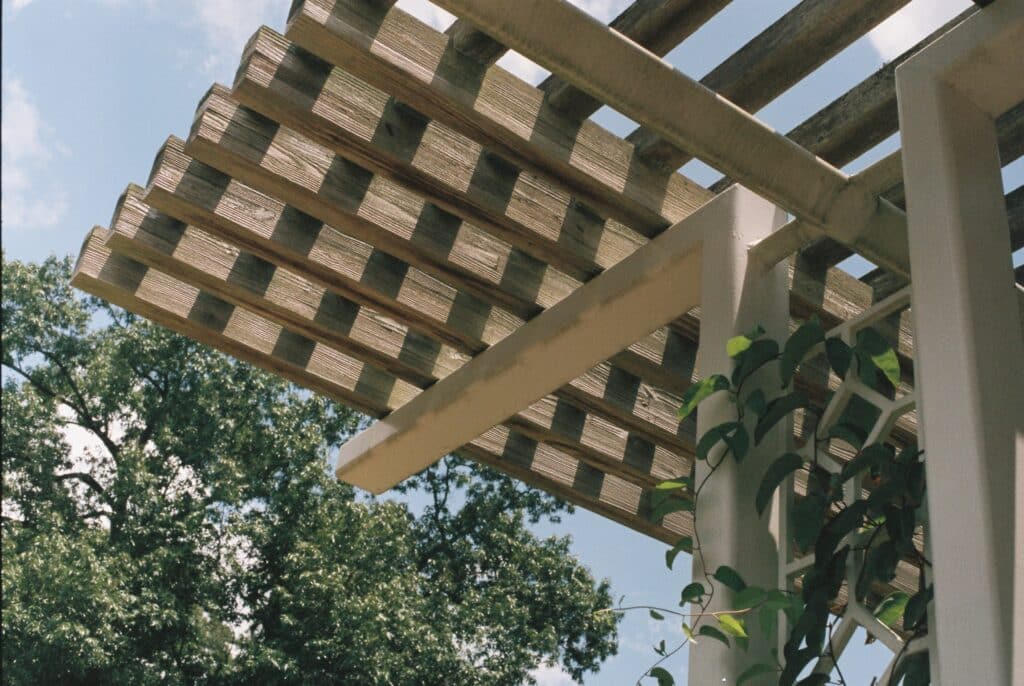
Pros and Cons of using Wood as pergola material for Texas, Arizona, Florida
Wood is often touted as the best material for pergola construction, and with good reason. Wood is strong and durable, making it a good choice for both small and large pergolas.
In addition, wood is relatively easy to work with, so it can be used to create a wide variety of shapes and sizes. However, there are also some downsides to using wood for pergola construction.
One is that wood is susceptible to rot and insect damage, so it will require regular maintenance. In addition, wood is a natural material, so it may not always be available in the sizes and styles you need. Overall, wood is a good choice for pergola construction, but it is important to weigh the pros and cons before making a decision.
What kind of wood should I use for my pergola?
When building a pergola, it’s best to avoid wood such as pine or cedar that is prone to rot in hot climates such as Texas, Florida, and Arizona. Instead, opt for hardwoods such as teak or ipe that are more resistant to moisture and temperature levels.
If you’re looking for a less expensive option, aluminum is a great alternative that is highly durable and requires minimal maintenance. Ultimately, the best wood for your pergola will depend on what best meets your needs and budget.
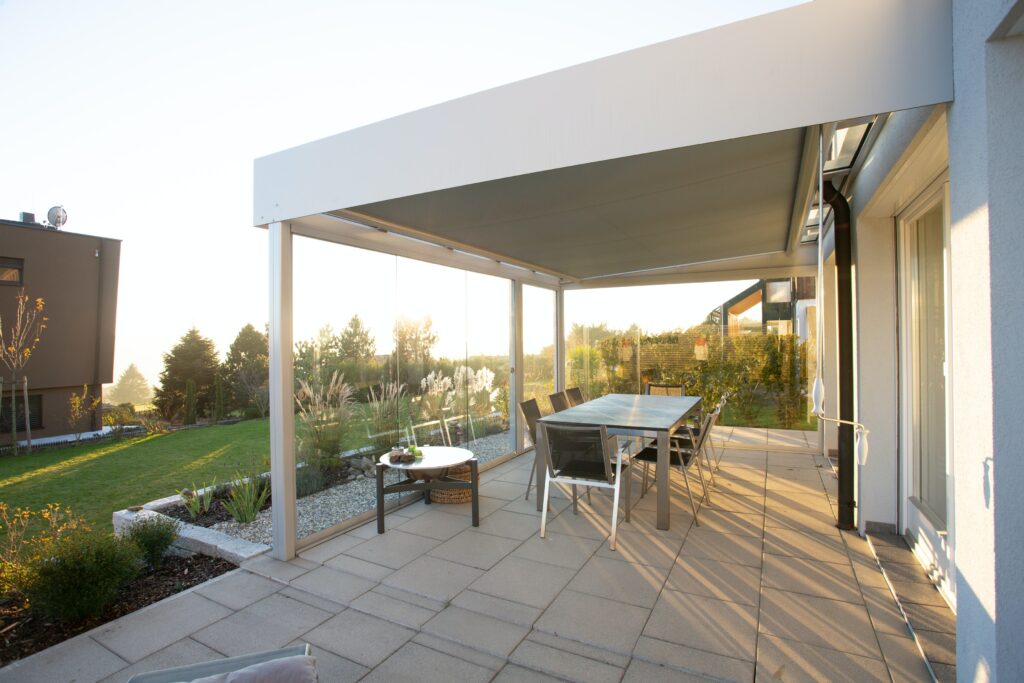
Pros and Cons of using Vinyl as pergola material for Texas, Arizona, Florida
When it comes to choosing a material for your pergola, there are a few things you’ll want to keep in mind. One of the most popular materials for pergolas is vinyl. Vinyl is a durable material that resists rot and insect damage, making it a low-maintenance option.
It’s also easy to clean and can be wiped down with a damp cloth. However, vinyl is not as strong as some other materials, such as wood, and can be damaged by wind and hail. It’s also susceptible to sun damage, so you’ll need to take care to protect it from UV rays. If you’re looking for a material that requires little maintenance and will withstand the elements, vinyl may be the right choice for you.
Pros and Cons of using PVC as pergola material for Texas, Arizona, Florida
PVC is a material that is commonly used for pergolas. PVC is a lightweight material that is easy to work with. It is also resistant to rot and insect damage. PVC is available in a variety of colors, making it easy to find a color that will complement your home. However, PVC can be damaged by sunlight and may become brittle over time.
This is also a synthetic material, which means it may not be as environmentally friendly as some other materials. Overall, PVC is a popular material for pergolas because it is easy to work with and available in a variety of colors. However, it can be damaged by sunlight and may not be as durable as some other materials.
PVC is a material for pergola that is made of polyvinyl chloride. It is a strong and durable material that is weather resistant and easy to clean. PVC is also an affordable material for pergola. However, PVC may not be the best material for pergola if you are looking for an eco-friendly option. PVC is made from non-renewable fossil fuels and can release harmful chemicals into the environment when it is produced.
When PVC is disposed of, it can also take centuries to break down. As a result, PVC may not be the most sustainable material for pergola. You will need to weigh the pros and cons of PVC before you decide if it is the right material for your pergola project.
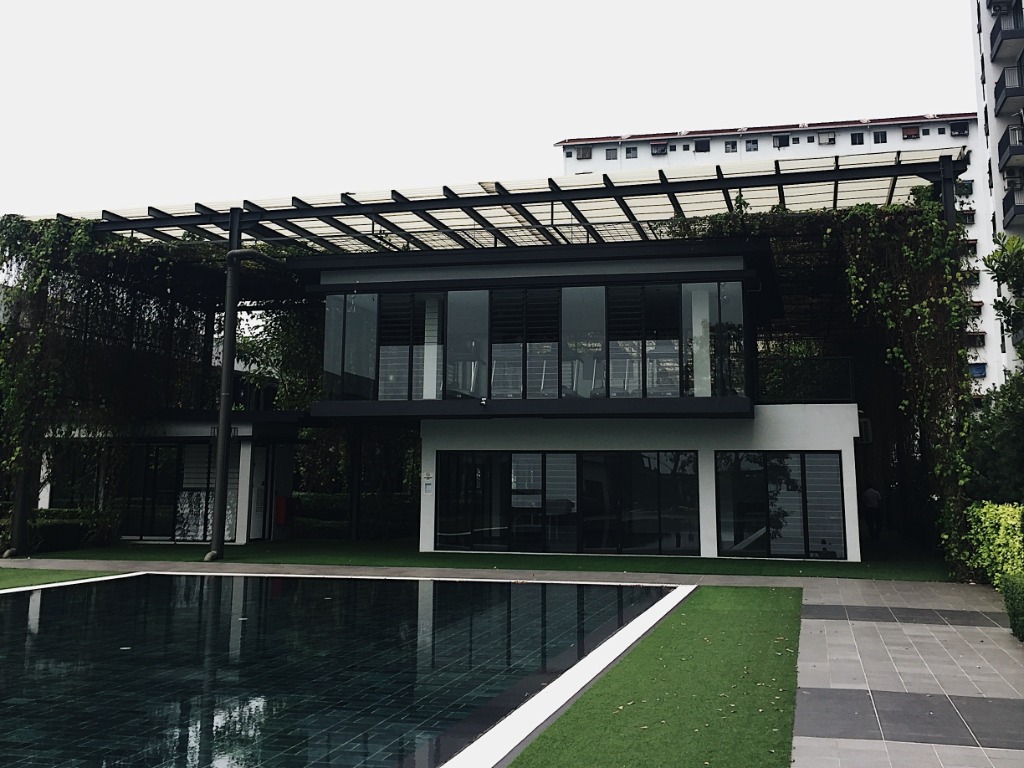
Pros and Cons of using Steel as pergola material for Texas, Arizona, Florida
One of the best materials you can use for your pergola is steel. Steel is incredibly strong and durable, meaning it will be able to stand up to the elements for years to come. It’s also relatively easy to work with, so you should be able to get the pergola built without any major issues.
However, there are a few things to keep in mind before you decide to go with steel. First, it’s one of the more expensive materials, so you’ll need to make sure you’re prepared to pay a bit more for your pergola. Second, steel can rust over time if it’s not properly maintained. So, if you choose steel for your pergola, be sure to check on it every now and then to make sure everything is still in good condition.
Best pergola material for Texas, Arizona, Florida – FAQ

Are wooden pergolas suitable for hot climates?
Wooden pergolas are not always the best choice for hot climates, as certain types of wood can be prone to decay. However, if you choose a durable hardwood such as cedar or teak, it can provide an attractive and long-lasting solution in even the hottest climates. Regular staining or sealing will also be necessary to maintain its color and weather-resistant properties.
What is the most durable pergola material?
Aluminum is considered to be the most durable material for pergolas, as it will not corrode or rust over time. Aluminum is also highly resistant to cracking and fading due to prolonged exposure to sunlight. It is also lightweight and easy to work with, making it a popular choice among homeowners looking for an economical solution. Good to mention that there are several companies which build and sell only pergolas made from aluminum, for example this one in Arizons – Company from Arizona Vinyl is another durable option, as it is resistant to warping and rotting.
What is the best material for a pergola cover?
The best material for a pergola cover depends on your individual needs and budget. Canvas is the most popular choice, as it provides superior protection from UV rays and other elements. It is also easy to clean and maintain, making it an ideal option for anyone looking for a low-maintenance solution.
Vinyl, mesh, or shade cloths are also excellent options, as they are available in a variety of colors and textures to fit any outdoor space. Ultimately, choosing the right cover material depends on finding a balance between coverage and ventilation that works best for your particular needs.
How do I keep my patio from getting too hot?
There are several ways to keep your patio from getting too hot. First, consider adding an awning or shade cover over your patio for additional protection from the sun. Additionally, opting for lighter-colored materials such as aluminum and canvas can help reflect heat rather than absorbing it. Finally, planting some trees near your patio will provide extra coverage from the sun while also adding a touch of natural beauty.
How many years do pergolas last?
The lifespan of a pergola depends on the type of material used and the amount of care taken. Generally, aluminum and vinyl pergolas can last up to 20 years or more with proper maintenance and protection from the elements.
Wooden pergolas will typically require more upkeep due to weathering and rot, but if treated properly they can last up to 10 years or more. Ultimately, proper maintenance is key to making sure your pergola lasts for years to come.
Is it cheaper to build a pergola or buy one?
The answer to this question depends on a number of factors, including the cost of materials and the amount of time and labor required. If you are handy with tools and have some experience in carpentry, you may be able to build a pergola for less than the cost of purchasing one.
However, if you need to hire someone to do the work for you, it is likely that buying a pergola will be cheaper in the long run. Additionally, the cost of materials can vary widely, so be sure to get an estimate before making a final decision. Ultimately, the best way to save money on a pergola is to compare prices and choose the option that best fits your needs and budget.
On average, a basic pergola can cost anywhere from $500 to $3,000. However, more intricate designs can cost upwards of $10,000. Pre-fabricated kits are typically more expensive than building a pergola from scratch. However, they can be more cost-effective in the long run because they are easier to install and require less maintenance.
Ultimately, the best way to save money on a pergola is to shop around and compare prices from different retailers. By doing your research, you can find the perfect pergola for your budget.
What should I look for when buying a pergola?
A pergola is a perfect addition to any garden, providing a shady spot to relax or entertain guests. But with so many different styles and materials on the market, how do you choose the right one for your needs? Here are a few things to keep in mind when shopping for a pergola:
Next, think about the material. Pergolas can be made from wood, metal, or even plastic. Each material has its own benefits and drawbacks, so choose the one that best suits your needs. For example, wooden pergolas are classic and elegant, but they require more maintenance than their metal or plastic counterparts.
What is the best textile material to cover pergola?
The best textile material to cover pergola depends on the climate and your personal preferences. For hot climates, such as those found in Texas, Florida, and Arizona, materials such as canvas or mesh are best suited for providing shade while allowing some airflow.
These lightweight materials are also highly durable and easy to maintain over time. If you’re looking for a more aesthetically pleasing option, there is a wide selection of waterproof fabrics available in various colors and textures. Ultimately, the best textile material to cover your pergola will depend on what best meets your needs and preferences.
Best pergola materials – Final Thoughts
Finally, don’t forget to factor in your budget. Pergolas can range in price from a few hundred dollars to several thousand, so it’s important to set a realistic budget before you start shopping. When selecting the best pergola material for hot climates, it is important to take the time to research your options thoroughly.
Consider all of your needs and budget before making a final decision, as each option will come with its own unique pros and cons. With careful consideration, you can find the perfect pergola material for your backyard oasis. With these factors in mind, you’re sure to find the perfect pergola for your home.
Don’t forget to check our other posts – Pergola: what is it, why is it needed, how to build and decorate might be interesting for you.
